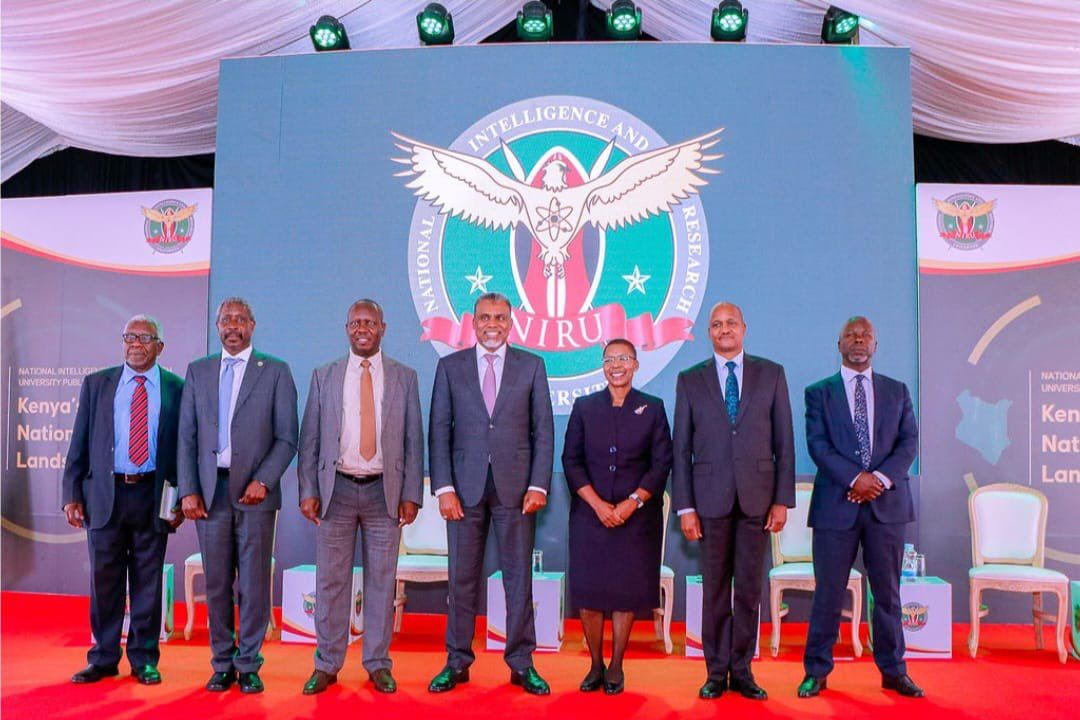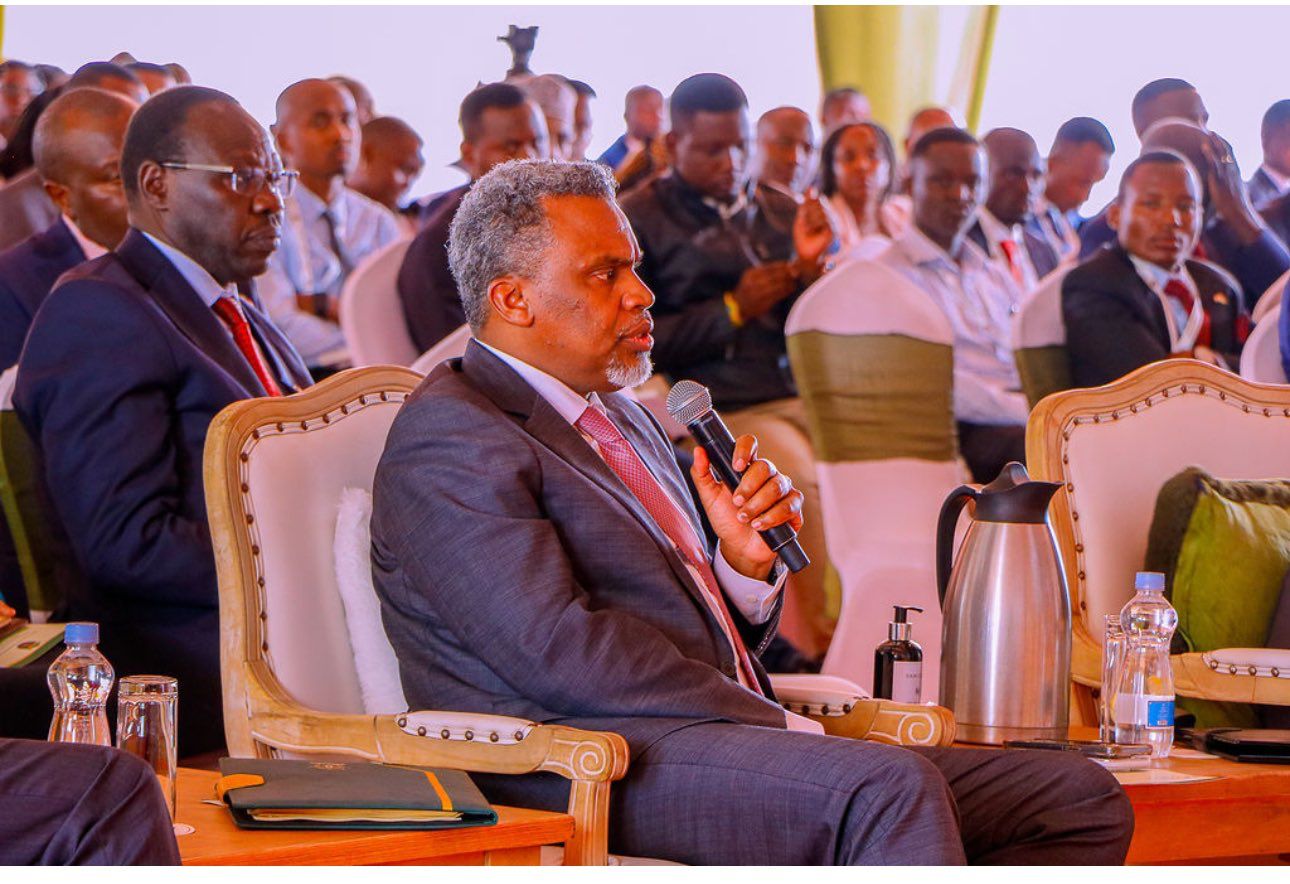Kenya’s National Intelligence Service (NIS) is reshaping its approach to national security by actively engaging the public, recognizing the value of citizen participation.
In a groundbreaking public lecture at the National Intelligence and Research University (NIRU), NIS Director General Noordin Haji, alongside top security chiefs, emphasized the need for greater transparency in the modern information era.
“In a democratic state, silence must never be mistaken for impunity,” said Haji.
Kenya is facing growing security threats from regional conflicts, corruption, and radicalization, the NIS boss warned.
Haji said that instability in neighboring countries, including Ethiopia, Sudan, and South Sudan, could lead to an influx of refugees, illegal arms, drug trafficking, and cross-border crimes.
“These developments are straining our resources and complicating our efforts to promote integration and peace. The instability of our neighbors directly impacts our own safety and prosperity,” he said.
Haji stressed that corruption is at the center of nearly every security challenge in Kenya, warning that failure to confront it will enable criminal networks, terrorist organizations, and foreign actors with harmful intentions to manipulate policies and exploit national resources.
“It is not just about stolen funds. It is the enablers of crime, food insecurity, environmental degradation, terrorism, cyber threats, and ecological vulnerabilities,” he said.
The NIS chief called for a collaborative approach, urging partnerships between the government, private sector, civil society, and citizens to tackle emerging security threats.
Extremism and the Digital Space
Going further, Haji expressed concern over the changing nature of violent extremism in Kenya, where radicalization is increasingly taking place online.
He said groups like Al Shabaab and ISIS are exploiting economic hardships, mental health struggles, and ideological weaknesses to recruit new members.
“So you can imagine that, unlike other countries, we are just next door to a terrorist outfit that can easily raise Sh25.8 billion ($200 million) to create chaos. This is the reality we face,” he remarked.
In his speech, Haji explained that Al Shabaab funds its operations through illicit financial networks and unregulated cryptocurrency transactions.
“The threats are global, the effects are regional, but the consequences are deeply personal,” he expounded.
Haji also pointed to the expansion of terrorist networks in the Middle East, North Africa, and West Africa as a growing concern for Kenya.
 NIS Director General Noordin Haji (center), Attorney General Dorcas Oduor (third from right) and other officials during a public lecture at the National Intelligence and Research University. PHOTO/NIRU
NIS Director General Noordin Haji (center), Attorney General Dorcas Oduor (third from right) and other officials during a public lecture at the National Intelligence and Research University. PHOTO/NIRU
The NIS boss said the government is addressing security by tackling its root causes, especially in underdeveloped regions.
He noted that children who miss out on education due to insecurity are at a higher risk of being recruited into criminal activities.
“The child who cannot access education because of insecurity is the same one who may become a bandit, a terrorist, or a trafficker and then we spend even more [money] to fight them later,” explained Haji.
The NIS boss also highlighted that Kenya faces a dual reality; while some citizens struggle with ethnic divisions and insecurity, others grapple with modern threats such as cybercrime, misinformation, and intellectual property theft.
“Since independence, Kenyan institutions have secured only 55 patents. Yet our young people are innovating daily only for their ideas to be exploited by others and commercialized abroad,” he said.
Call for public engagement in security
In addition, Haji said the NIS is committed to fostering transparency and public engagement in security matters.
He noted that intelligence agencies worldwide have begun engaging in public discussions to strengthen trust, national security, and diplomacy.
“Public discussions on intelligence are not without precedence. Intelligence agencies worldwide engage in open dialogues to emphasize their role in national development, security, and diplomacy,” he continued.
Haji urged the public to recognize the importance of intelligence work, explaining that while intelligence operates discreetly, it exists to protect Kenya’s national security.
“Intelligence work, by its very nature, cannot always be loud. It cannot always explain itself. And yet, in a democratic state, silence must never be mistaken for impunity,” he said.
The event, attended by representatives from the media, academia, corporate sector, civil society, and faith-based organizations, was aimed at opening up Kenya’s intelligence discourse and fostering a whole-of-society approach to national security.

